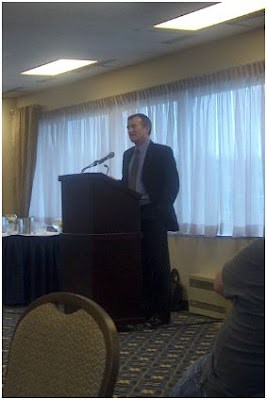Ms Rudy stated in Can All Positive, Intensive Therapies Help Kids with Autism?:
As a result, there's no good way to know whether a child who received Floortime would have done better with RDI or ABA. Certainly, evidence shows that most children with autism improve to varying degrees with intensive therapy, no matter what its name.
Apart from the recent Fein study demonstrating full recovery as set out above other studies and reviews of those studies have unequivocally indicated that only ABA enjoys a solid evidence basis in support of its effectiveness:
The MADSEC (Maine) Autism Task Force assessed the evidence basis in support of various autism interventions as of 2000 and found that only one, ABA, met the highest standard:
"Based upon a thorough examination of numerous methodologies considered as interventions for children with autism, the MADSEC Autism Task Force has characterized the interventions reviewed as follows:
Applied behavior analysis.
In addition, applied behavior analysis’ evaluative procedures are effective not only with behaviorally-based interventions, but also for the systematic evaluation of the efficacy of any intervention intended to affect individual learning and behavior. ABA’s emphasis on functional assessment and positive behavioral support will help meet heightened standards of IDEA ‘97. Its emphasis on measurable goals and reliable data collection will substantiate the child’s progress in the event of due process.
In describing the evidence backed benefits of ABA the MADSEC Report noted that:
There is a wealth of validated and peer-reviewed studies supporting the efficacy of ABA methods to improve and sustain socially significant behaviors in every domain, in individuals with autism. Importantly, results reported include “meaningful” outcomes such as increased social skills, communication skills academic performance, and overall cognitive functioning. These reflect clinically-significant quality of life improvements. While studies varied as to the
magnitude of gains, all have demonstrated long term retention of gains made.
Other major contributions of ABA to the education and treatment of individuals with autism include:
• a large number of empirically-based systematic instruction methods that lead to the acquisition of skills, and to the decrease/elimination of aberrant behaviors;
• a technology for systematically evaluating the efficacy of interventions intended to affect individual learning and behavior; and
• substantial cost/benefit.
Over 30 years of rigorous research and peer review of applied behavior analysis’ effectiveness for individuals with autism demonstrate ABA has been objectively substantiated as effective based upon the scope and quality of science. Professionals considering applied behavior analysis should portray the method as objectively substantiated as effective. Methods of applied behavior analysis should be considered to evaluate the effectiveness of any intervention used to help individuals with autism. Researchers should continue to vigorously investigate behavioral intervention as the most promising area of research and treatment benefiting individuals with autism known today. Early interventionists should leverage early autism diagnosis with
The American Academy of Pediatrics Management of Children with Autism Spectrum Disorders (2007) report described the level of evidence of ABA effectiveness in a manner that no other treatment mentioned in the report even remotely approximated:
Applied Behavior Analysis
Applied behavior analysis (ABA) is the process of applying interventions that are based on the principles of learning derived from experimental psychology research to systematically change behavior and to demonstrate that the interventions used are responsible for the observable improvement in behavior. ABA methods are used to increase and maintain desirable adaptive behaviors, reduce interfering maladaptive behaviors or narrow the conditions under which they occur, teach new skills, and generalize behaviors to new environments or situations. ABA focuses on the reliable measurement and objective evaluation of observable behavior within relevant settings including the home, school, and community.
The effectiveness of ABA-based intervention in ASDs has been well documented through 5 decades of research by using single-subject methodology21,25,27,28 and in controlled studies of comprehensive early intensive behavioral intervention programs in university and community settings.29–40 Children who receive early intensive behavioral treatment have been shown to make substantial, sustained gains in IQ, language, academic performance, and adaptive behavior as well as some measures of social behavior, and their outcomes have been significantly better than those of children in control groups.31–40
To these reviews of studies supporting ABA effectiveness in treating autism can be added the US Surgeon General and the NY State Department of Health. Now the Fein study on autism recovery would add to the information basis of such reports.
We are decades past the point where About.com Autism can claim that all autism interventions are created equal as long as they are positive and done early and intensively. There is no evidence to support the About.com position. The About.com Autism position is in essence a rejection of an evidence based approach to assessing autism interventions.





